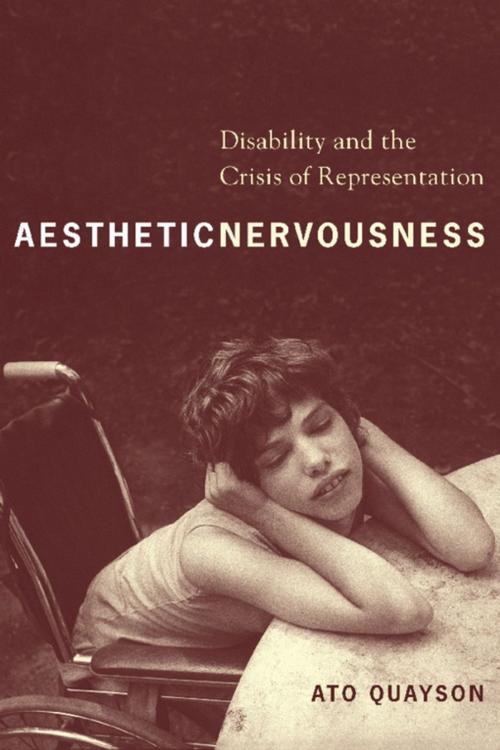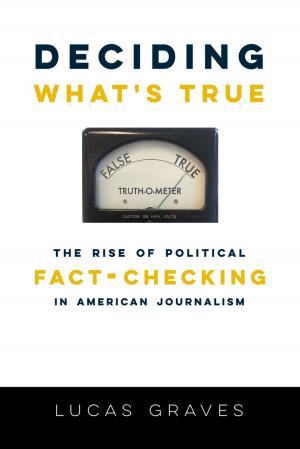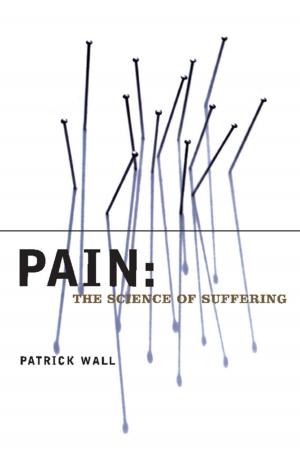Aesthetic Nervousness
Disability and the Crisis of Representation
Nonfiction, Social & Cultural Studies, Social Science, Disability, Fiction & Literature, Literary Theory & Criticism, Theory| Author: | Ato Quayson | ISBN: | 9780231511179 |
| Publisher: | Columbia University Press | Publication: | June 29, 2007 |
| Imprint: | Columbia University Press | Language: | English |
| Author: | Ato Quayson |
| ISBN: | 9780231511179 |
| Publisher: | Columbia University Press |
| Publication: | June 29, 2007 |
| Imprint: | Columbia University Press |
| Language: | English |
Focusing primarily on the work of Samuel Beckett, Toni Morrison, Wole Soyinka, and J. M. Coetzee, Ato Quayson launches a thoroughly cross-cultural, interdisciplinary study of the representation of physical disability. Quayson suggests that the subliminal unease and moral panic invoked by the disabled is refracted within the structures of literature and literary discourse itself, a crisis he terms "aesthetic nervousness." The disabled reminds the able-bodied that the body is provisional and temporary and that normality is wrapped up in certain social frameworks. Quayson expands his argument by turning to Greek and Yoruba writings, African American and postcolonial literature, depictions of deformed characters in early modern England and the plays of Shakespeare, and children's films, among other texts. He considers how disability affects interpersonal relationships and forces the character and the reader to take an ethical standpoint, much like representations of violence, pain, and the sacred. The disabled are also used to represent social suffering, inadvertently obscuring their true hardships.
Focusing primarily on the work of Samuel Beckett, Toni Morrison, Wole Soyinka, and J. M. Coetzee, Ato Quayson launches a thoroughly cross-cultural, interdisciplinary study of the representation of physical disability. Quayson suggests that the subliminal unease and moral panic invoked by the disabled is refracted within the structures of literature and literary discourse itself, a crisis he terms "aesthetic nervousness." The disabled reminds the able-bodied that the body is provisional and temporary and that normality is wrapped up in certain social frameworks. Quayson expands his argument by turning to Greek and Yoruba writings, African American and postcolonial literature, depictions of deformed characters in early modern England and the plays of Shakespeare, and children's films, among other texts. He considers how disability affects interpersonal relationships and forces the character and the reader to take an ethical standpoint, much like representations of violence, pain, and the sacred. The disabled are also used to represent social suffering, inadvertently obscuring their true hardships.















